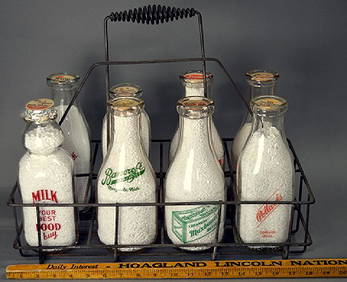Jazzy1
Got A Cracker?
- Location
- Adirondack Region NY
Describe your first job and a memorable lesson it taught you.
yes I had to use one the same Ronni.. when I worked in the Co-op....When I was 14 I worked behind the counter at Woolworths during my summer vacation from school.
I learned how to operate a cash register very similar to this one, and to count out correct change.
View attachment 457783
My first job was at Sonic at 16 yrs old. I delivered burgers and fries to the hungry folks in their cars. The lesson it taught me was to proceed with caution because I was wearing roller skates!Describe your first job and a memorable lesson it taught you.
My first job was at 14 yrs old, detasseling corn. I don't think I learned anything useful (learned that I wasn't a morning person, and learned the lyrics to 99-bottles-of-beer-on-the-wall).
My two older brothers worked on my papaws farm during summer breaks from school. I never knew someone could actually 'hit the side of a barn' but my brother Brian did with my papaws pickup.My first and only job as a civilian was working on the family farm.
believe me it's a lot worse in Scottish winters delivering ice cold milk bottles in the snow and have the frozen bottle stick to your fingers... very painful... and also falling over in the ice, and having bottles smash in your hands... , remembering also everything had to be delivered very fast, which meant jumping off the milk float with a hand crate full of pint bottles before it had even come to a full stop....especially just a kid... and even worse, I wasn't paid for it....My first paying job at about age 10 or 11 was a daily morning paper route. That really sucked getting up at about 5:30 AM 7 days a week, especially in the midwest winters.
My second job at 16 was working in a factory after school and on Saturdays in a factory that made leather and cotton work and dress gloves. My job to take a sewn, but inside out leather glove and turn the glove right side out. I think minimum wage back then was $1.40/hour.


